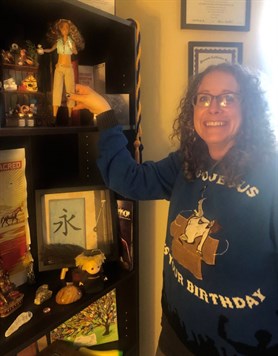Harm Reduction in the Land of 10,000 Rehabs
“Harm reduction is the only thing stopping overdose deaths.”
3 Feb 2019Addiction counselor Stephanie Devich points to a Christmas tree glimmering with purple and silver ornaments in the lobby of Valhalla Place, the largest methadone provider in Minnesota. This is not your average Christmas tree. Look closer, and each ornament is etched with the name of a patient who died of an overdose. Minnesota suffered 694 overdose deaths in 2017, representing a 50 percent increase in two years. “Sadly, there isn’t enough room for any more ornaments,” says Devitch. “It’s like a death tree, but I wanted to turn it into something healing, to honor and celebrate the lives lost.”

Though the realities of the overdose crisis are grim, Devich is anything but. “My treatment plans are different than most addiction counselors,” she says. “One of my clients was smoking crack four days a week but wanted to reduce her use. We set a goal for only three times a week. She slowly weened herself down to the point she hasn’t smoked crack in over two years. It works. That’s not what we were taught in school, but I think we have to step outside our comfort zone. Because if someone can feel their goal is achievable, they can find their own version of recovery.”
In other words, it’s harm reduction. And while a state famed for birthing the abstinence-only “Minnesota model” of treatment and the Hazelden Betty Ford Foundation might not sound like fertile ground for harm reduction, it’s most certainly breaking through.
“I want to make sure that nobody dies, especially because of the stigma and shame people face, especially those who inject drugs.”
Devich is in no way your average addiction counselor. Presenting an overdose training one morning, she wears a blue sweater emblazoned with a breakdancing white-robed man and the phrase, “Go Jesus, It’s Your Birthday.”
She and other harm reduction activists across Minnesota have been making naloxone distribution, overdose prevention trainings, syringe exchange programs, advocacy and education their mission. After distributing 66,000 naloxone kits throughout the state, Devich tracked 1,847 overdose reversals from January to August 2018.
Share this on: